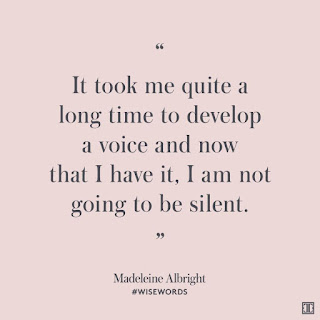Energy Zapper #5: Shame! Taking Shame Out Of Its Shadows!
We have been discussing Energy Zappers! What are they? For
the most part, they are habits or social behaviors which are a part of our
everyday life, but unfortunately do very little to enhance our sense of
well-being. Why? Because they deplete us! If you haven’t had a chance to read them, go
back and review #1 - Giving Advice, #2 - Drama ,#3- Worry, #4 -Negativity.You might find them helpful in keeping
yourself energized! Today, we are going to take a bit of a departure and talk
about a zapper that really isn’t a habit or social behavior – it is an emotion.
However, because of the silence, secrecy, and stigma around this emotion – it
often goes unattended and unaddressed – eroding the core of our beings. What is Energy Zapper #5? It is... Shame. And because
of the complexity of shame –its
anatomy, its sources of causation, and its unique healing considerations – we
will spend two blogs on this zapper!
 |
| Self- Hatred |
Over the past couple of years, it seems as though there has
been more of an interest in shame. It
has made its way into our academic conversations and there is more of an
acceptance of it as a legitimate source of self-harm. At the same time, it is a deeply personal
emotion that is difficult to own and to discuss. What is it about shame that silences our voices and
suffocates our spirits?
As we gain a better understanding of it, let’s take a look
at the anatomy of shame though this
acronym:
Let’s say that to ourselves again ~ Self-Hatred And
Malignant Embarrassment ~
No wonder it is so hard to hold this emotion - let alone speak of it. At a closer examination of the word self-hatred,
it implies much more than a dislike or dissatisfaction with oneself. This
is a degree of self-loathing and self-contempt that is intolerable and frequently leads one to
medicate with unhealthy self-soothing measures.This intensity of self-hatred is entwined with other toxic
emotions such as guilt, self-blame, and debilitating disgust. Unless addressed,
these self-deprecating emotions are further exacerbated by malignant embarrassment - a
terminal humiliation that envelopes us in its secrecy and stigma.
What a heaviness to carry...
What a blanket of burden weighing down one's body, mind and spirit.
What is the source of shame?What are its powerful causes that deplete us and erode our sense of well-being? I believe that shame is rooted
in one of three kinds of betrayal.
- Betrayal by someone
- Betrayal of someone
- Betrayal of self
- Was let go or fired from a job unjustifiably?

Betrayal by Someone - Was left by his/her partner or spouse unexpectedly?
- Was scammed by a person or company?
- Was abandoned, abused, neglected or rejected by a loved one, family member, or friend?
- Was lied to by a trusted individual?
When an individual is betrayed
by someone else, the victim’s truths are no longer so.
He has been robbed
from what he had, redefined from who he was,
and often relinquished to a lesser
place/status than he knew before.
These losses are compounded with thoughts of “If only I would have…”, or “I should have…”
which in turn fuel and feed the descent into shame. It is a dark and difficult place to be - feeling wronged and taking on responsibility for it.
As we move on to betrayal
of someone, it might seem ironic that the deliberate or planned violation
of trust against someone would incite feelings of shame. And of course, there are individuals who for various reasons
feel no sense of remorse or guilt for their actions. However, I believe that
most healthy individuals involved in the betrayal of another person – either
intentional or unintentional – experience tremendous shame. It may not show
itself in obvious ways; it may lay dormant for an extended period of time; and
it may never be outwardly revealed. But
eventually, the shame festers and the secrecy of it begins to manifest in a variety of unhealthy
reactive and/or repressive behaviors. Have you experienced or know of someone
who has exhibited any of the following attitudes, emotions, or behaviors after
betraying another individual?
- Bitterness
- Anger
- Resentment
- Blame
- Narcissism or other self-inflating characteristics
- Addictions or other unhealthy self-soothing behaviors
- Depression
- Anxiety
Attempts at masking the self-hatred
and malignant embarrassment are usually futile. Over time and without acknowledgement of
wrongdoing accompanied with appropriate restitution or resolution, shame takes on a persona of its own. And, it smothers the true self.
Lastly, let’s take a look at betrayal of self. What do I
mean by betrayal of self? This is
important.
Whenever we relapse or regress into any unhealthy pattern of
thinking, behaving, or feeling –
we betray ourselves and we experience tremendous shame.
we betray ourselves and we experience tremendous shame.
For example, have you or someone you know…
- Regressed into a former pattern of unhealthy behavior such as anger, rage, or control?
- Returned to toxic relationships or abusive friendships?
- Relapsed into drugs, alcohol, or other addictions?
- Abandoned or turned away from a program of recovery or a process of healthy living?
- Left an environment that is healthy and healing – a place of work or living, support systems or friendships?
- Let go of spiritual practices that tether individuals to their worth or purpose?
- Rejected cultural or ethnic norms, traditions, or customs and forfeited the foundations of your heritage?
- Denied your true selves – who you are, your roles, and your identities?
- Let go of your truths - held onto past mistakes, secrets, injuries or injustices; lied to yourself and to others about them?
Most of us have experienced one or more of these! And, let's be honest - who wants to admit it or talk about it? Why? Because the most painful and shameful
part of betrayal of self is that we
chose it. No one forced us or coerced us into the betrayal. We made the
decision! We own it! And thus, the self-hatred
and malignant embarrassment seep into our inner core and begin to strangle
our spirit. As we go about our days, shame surfaces here and there as triggers remind us of our self -betrayal. And, it takes tremendous energy to push it down - to keep it away. And then, left unattended - shame will linger and leave us increasingly depleted.
 |
| Betrayal of Self |
In closing for today, I know that this blog has not been
energizing! However, I do hope it has been enlightening! By taking shame out of its shadows – understanding
its anatomy and its sources of causation - it ceases to survive in secrecy! And
that is where we must start!
Next time as we look at 3 unique healing considerations, we will move from...
Self-Hatred And Malignant Embarrassment
to a recharging acronym...
~ Shared Healing And Mindful Existence ~





Comments
Post a Comment